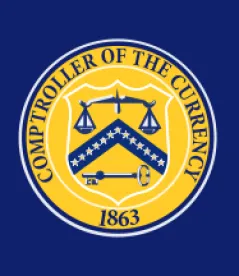On August 21, 2017, Keith Noreika, the Acting Comptroller of the Currency, sent a letter to Jeb Hensarling, the Chairman of the House Financial Services Committee, stating that the Office of the Comptroller of the Currency (“OCC”) is not, and never was, a part of Operation Chokepoint, and that Operation Chokepoint is not the policy of the OCC. Acting Comptroller Noreika sent the letter in response to a request from Chairman Hensarling that the OCC issue a formal repudiation of Operation Chokepoint.
In rejecting Operation Chokepoint, Acting Comptroller Noreika wrote that “the agency rejects the targeting of any business operating within state and federal law as well as any intimidation of regulated financial institutions into banking or denying banking services to particular businesses.” Acting Comptroller Noreika also stated that the OCC “expects the banks it supervises to maintain banking relationships with any lawful businesses or customers they choose, so long as they effectively manage any risks related to the resulting transactions and comply with applicable laws and regulations.”
Operation Chokepoint, an Obama-era initiative to “disrupt . . . illegal third-party payment processor schemes” by investigating banks’ relationships with merchants in businesses deemed to present a high fraud risk, was launched by the U.S. Department of Justice (“DOJ”) in 2012. Republican lawmakers have criticized the initiative, stating that it has discouraged banks from engaging with law-abiding companies, including short-term lenders and gun retailers. The OCC’s repudiation of Operation Chokepoint follows a letter from Assistant Attorney General Stephen Boyd on August 16, 2017, which rejected the “misguided initiative” and indicated that all of the DOJ’s “investigations conducted as part of Operation Chokepoint are now over, the initiative is no longer in effect, and it will not be undertaken again.”
Although the OCC letter is a helpful reiteration of OCC policy, the OCC has yet to join the Federal Deposit Insurance Corporation (“FDIC”) in issuing public formal guidance to examiners with respect to account terminations. For example, the FDIC released a staff memo on January 28, 2015, requiring that examination staff only make requests for banks to terminate deposit relationships in writing and that such requests be reported up within the FDIC. This policy is similar to the requirements of Rep. Luetkemeyer’s Financial Institution Customer Protection Act, which prohibits regulators from requesting or ordering a bank to terminate a specific account or group of accounts without providing the bank a written justification that is not based solely on reputational risk.
The FDIC also released a Financial Institution Letter affirming that “the FDIC encourages institutions to take a risk-based approach in assessing individual customer relationships rather than declining to provide banking services to entire categories of customers,” suggesting that minor technical violations of the Bank Secrecy Act will not attract adverse regulatory attention, and reminding institutions that they can contact the FDIC ombudsman and inspector general if faced with overly aggressive regulation of deposit customer relationships. The OCC could provide more certainty by adopting a similar approach.
Although the Acting Comptroller’s August 21 letter cites to a “Supervision Tip” recently provided to examiners which “reiterates [the OCC’s] long-standing policy not to direct banks to open, close, or maintain individual accounts, or engage in the termination of entire categories of customer accounts, without regard to the risks presented by individual customers,” this Supervision Tip appears to be internal guidance, is not publicly available, and has not been publicized before this letter.





 />i
/>i
